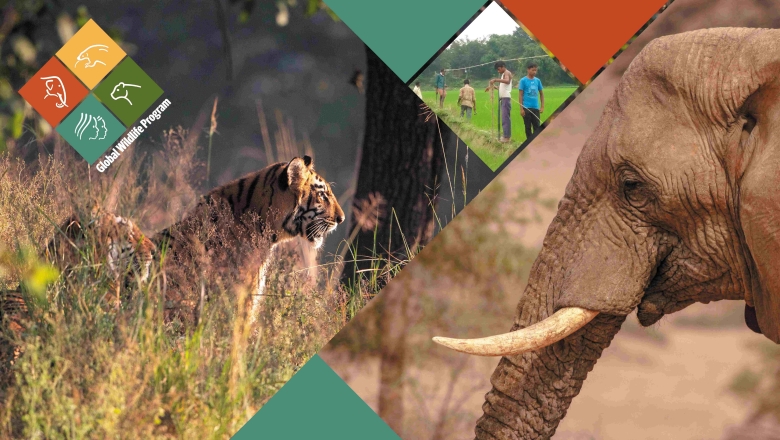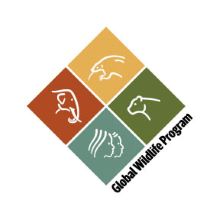Human-wildlife conflict (HWC) is a key work area and topic of concern for the national projects of the Global Wildlife Program (GWP). The objective of this training series was to develop technical knowledge and professional skills of practitioners working on human-wildlife conflict issues.
Human-Wildlife Conflict Training Series
May 03-June 30, 2021
Online

-
Led by GWP HWC technical advisor Dr. Alexandra Zimmermann, the training series consisted of two phases covering the following:
May-June 2021
Phase 1: Managing Conflicts Over Wildlife: Key PrinciplesThis phase introduced the key principles of working with wildlife conflicts. It focused on:
Making sense of the complexity and diversity of conflicts and understanding the levels of conflict.
Learning about the main principles for stakeholder engagement in human-wildlife conflict situations including how to identify the positions, interests, and relationships of the parties involved.
Designing processes for engaging stakeholders effectively and building sustainable collaborations.
This session brought together 150 participants from 30 GWP national projects who were able to learn about the essential concepts and discuss and analyze their own work on human-wildlife conflict.
November 2021
Phase 2: Human Dimensions and Social PsychologyThis training focused on:
Key Concepts: understanding how people’s attitudes, behavior, beliefs, and values are shaped, and the how-to of working with these constructively when mitigating or managing HWC.
Planning for solutions: identifying pathways for solutions by understanding what factors influence the actions, perceptions, and tolerance of individuals and communities.
Methods: an overview of how these human dimensions can be measured; the main social research methods and approaches commonly used in HWC assessments and which to choose for different purposes.
85 participants representing 26 GWP national projects joined the training. Three countries from the Amazon Sustainable Landscapes Impact Program, another GEF-funded, World Bank-led program were invited to join the LAC session. Participants included staff from governments, project implementing units, GWP GEF Agencies and partners such as UNDP, UNEP, WWF, IUCN, and technical experts.
Key takeaways from the training include:
HWCs situations are complex, muti-layered, and dynamic systems.
HWCs are challenging to manage because each situation is unique and underlying causes are often time-consuming and difficult to discern. Most efforts to address HWC look only at the surface.
HWC involves many different people, and usually not just those affected by the species involved. Therefore, detailed mapping of stakeholders is crucial to identify parties, positions and interests.
Planning and designing for HWC management requires a multi-pronged approach that draws from different theories, methods, and thematic expertise.
-
Phase 1 (May-June 2021) - Managing Conflicts over Wildlife: Key Principles
Presentations and facilitation delivered by Dr. Alexandra Zimmermann, GWP technical advisor on HWC (and founding Chair of the IUCN SSC Human-Wildlife Conflict Specialist Group)
Welcome & Introductions Introduction: Making Sense of Complexity and Diversity in Human Wildlife Conflict Levels of Conflict: Are You Solving the Right Problem? Understanding and Identifying Underlying Causes of a Given Conflict and How to Approach These Who is involved and why? Conducting Stakeholder Mapping and Analysis to Identify the Positions, Interests and Relationships of the Parties Involved Process Principles and Design: Working with Communities, How to Engage, De-Escalate Tensions, Build Constructive Dialogue, and Create Co-Ownership for Sustainable Collaborations Conclusions & Wrap Up Phase 2 (November 2021) - Human Dimensions and Social Psychology
Presentations and facilitation delivered by Dr. Alexandra Zimmermann, GWP technical advisor on HWC (and founding Chair of the IUCN SSC Human-Wildlife Conflict Specialist Group).Welcome & Introductions
Group work in breakouts and report back
Presentation of Case Stories/ Scenario (Part 2)
Group work in breakouts and report back Methods in Assessing the Human Dimensions Summary Discussion Closing
